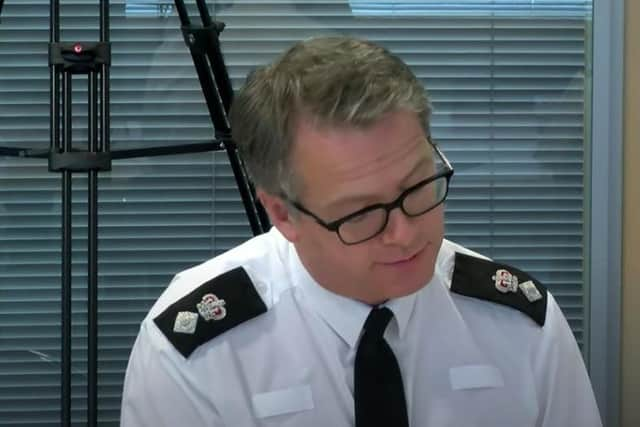Meeting demand for priority incidents “a daily challenge” for South Yorkshire Police as 2,000 crimes reported per month in Barnsley
and live on Freeview channel 276
A district report for Barnsley to Dr Alan Billings, South Yorkshire's the police and crime commissioner, states: "Child exploitation and neighbourhood crimes such as residential burglary continue to pose a threat, with the district working hard with local partners to tackle identified problems.
“Overall emergency response times remains around 75 per cent attendance within the target time of 15 minutes, with a marginal increase during January but broadly in line with previous months.


Advertisement
Hide AdAdvertisement
Hide Ad“Priority response times reflect a similar pattern, with attendance within 60 minutes around 53 per cent.
“Barnsley is currently experiencing around 2,100 recorded crimes per month which is consistent with the previous quarter.”
The crime types that have seen the largest increase in comparison to the previous quarter are residential burglaries, and stalking and harassment.
South Yorkshire Police has also seen “marked reductions” in sexual offences, violence without injury and theft from a motor vehicle.
Advertisement
Hide AdAdvertisement
Hide AdChief Supt James Abdy, Barnsley’s district commander, told a meeting of the PPC’s public accountability board today (April 11) that the priority response times reflect challenges across the force to meet demand.
“Whilst it seems lower than we probably anticipate, it’s putting this in the context of the challenge that we’ve got across the force to meet both emergency and priority demands.
“The work that he force are doing and also what’s happening locally around increasing the number of officers that are on response.
“That comes primarily through the uplift programme…and bringing those officers into the service, supporting their ongoing development, both within response and other functions, and actually getting them to a point where they’re a fully efficient, effective resource.
Advertisement
Hide AdAdvertisement
Hide Ad“It’s something that we work on very closely every day, in terms of monitoring the resources and incident queues.
“We monitor that on a daily basis and we mitigate that by taking practical decisions around demand management on a daily basis looking at what resources we’ve got across the district and make sure that we prioritise incidents within the priority queue to make sure we get to the ones that need that level of attendance.”

